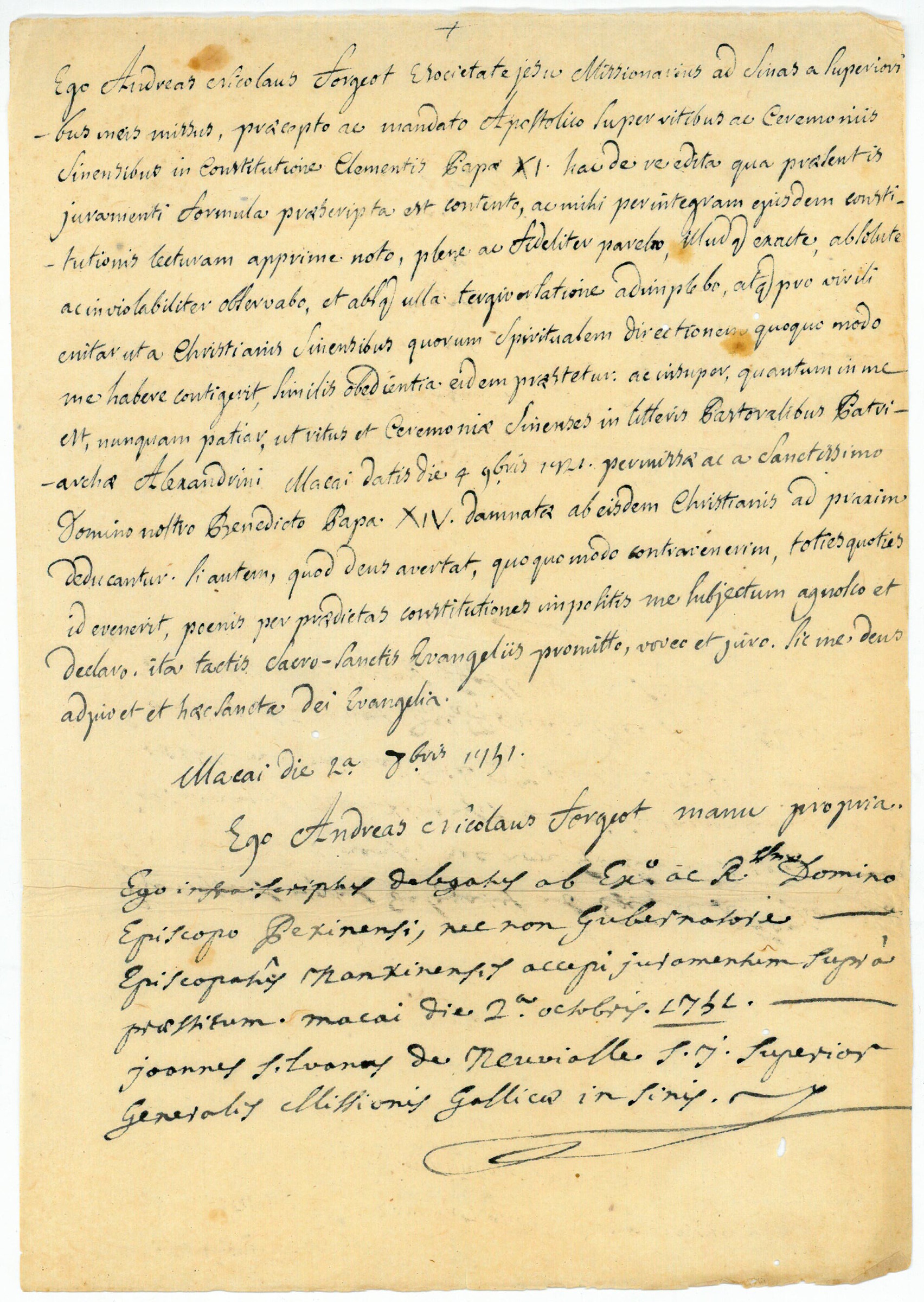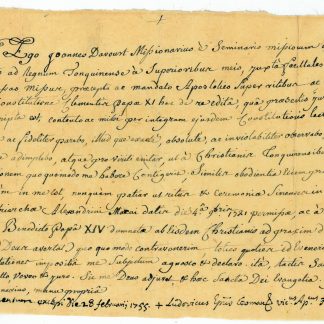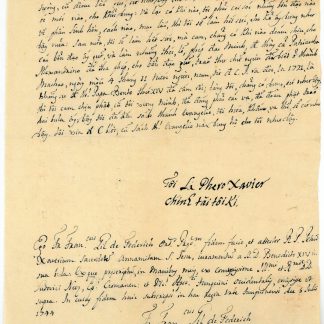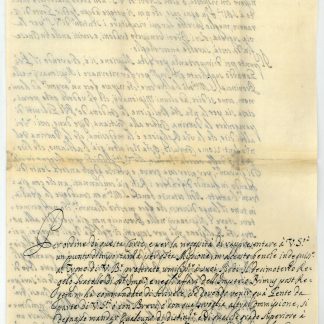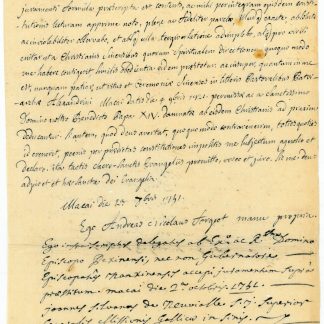Autograph document signed. Co-signed by Jean-Sylvain de Neuvialle, superior of the French Jesuit China mission.
8vo. 1 p. In Latin. With 6 autograph lines by Jean-Sylvain de Neuvialle.
€ 2.800,00
An oath renouncing the practice of the Chinese rites, taken by the Jesuit missionary as required by the Papal Bull "Ex Quo Singulari" (1742). The oath was sworn on the Bible, and a signed autograph ("manu propria") of the formula had to be produced as evidence. Most of these documents are co-signed by church officials or superior friars as witnesses to an oath sworn in their presence ("in manibus meis"), in this case the superior of the French mission, Jean-Sylvain de Neuvialle (1696-1764).
Born in Vézelay and trained in the province of Champagne, Forgeot was sent to Macau via Lisbon in 1746. He took the oath upon his profession in Macau but could not start his mission in mainland China for several years due to illness. In 1755 he was sent as a missionary to Hubei province, where he was active for several years until severe illness forced him to return to Macau before his untimely death. Forgeot is best known today for a long letter written soon after his arrival in Macau on 2 December 1750 that contains the most detailed report of the martyrdom of the Jesuit fathers Tristano Francesco d’Attimis and José António Henriques in Nanjing on 12 September 1748.
Jean-Sylvain de Neuvialle served twice as superior of the French Jesuit China mission and is the author of a 1754 report on the diplomatic mission of Francisco Xavier Assis Pacheco e Sampaio Melo, Portuguese amassador in Siam, to the Imperial Court in Beijing.
During the early years of their mission to East Asia, the Jesuits led by Matteo Ricci accommodated Catholicism to Chinese customs and Confucian practice in important ways, both for political reasons and in the hope of attracting more converts. Criticism of this syncretism is as old as the Chinese rites themselves, and Ricci's direct successor Niccolò Longobardo attempted to change course, which led to his replacement as provincial. When Dominican and Franciscan missionaries entered China, they reported to Rome critically on the Jesuit practices. A first condemnation was decreed by Pope Clement XI in 1704 and confirmed in the 1715 Bull "Ex Illa Die". In reaction to the condemnation, the Kiangxi Emperor, who initially tolerated the Christian missionaries and had especially good relations with the Jesuits, officially forbade Christian missions in China. In 1721, Carlo Ambrosio Mezzabarba, the Latin Patriarch of Alexandria, was sent as a Papal legate to Macau and Beijing. Despite the concession of "eight permissions" regarding the practice of the Chinese rites, officiated in a pastoral letter to the missionaries from 4 November 1721, the Emperor did not revoke the ban. Finally, in "Ex Quo Singulari", Pope Benedict XIV re-affirmed the Bull of 1715 and required all missionaries in the region to take the oath renouncing the practice of Chinese rites.
A transcription and translation of the document are available on request.
Louis Pfister, Notices biographiques et bibliographiques sur les jésuites de l'ancienne mission de Chine, 1552-1773, Chang-hai, 1932-1934 (Nendeln: Kraus Reprint, 1971), p. 834, no. 386 (Forgeot) and pp. 724-729, no. 325 (Neuvialle). Louis Aimé-Martin (ed.), Lettres édifiantes et curieuses. Lettres de Chine. Tome 3, pp. 259-270 (Paris 1843).

